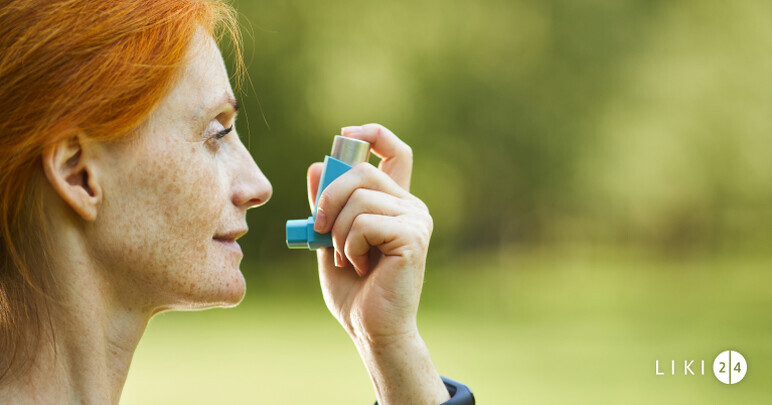Colds - symptoms and signs
The main cold symptoms include:
- sore throat;
- stuffy or runny nose;
- sneezing;
- cough;
- hoarseness;
- feeling sick.
Less common symptoms of a cold include:
- fever;
- headache;
- earache - severe earache may be a sign of a middle ear infection;
- muscle aches;
- loss of taste and smell;
- feeling of pressure in the ears and face.
Symptoms are usually more severe in the first 2-3 days, and then gradually begin to subside. Cold symptoms in children are similar to those usually seen in adults.
What is the difference between colds and flu?
Colds and flu have similar symptoms but are caused by different viruses. Flu tends to be more severe. Cold symptoms usually come on gradually and mainly involve the nose and throat - sore throat, stuffy or runny nose, sneezing, cough. Flu symptoms come on suddenly and can usually include headache, muscle aches, fever, tiredness and weakness.
How is the common cold spread?
A person with the common cold is contagious especially in the first 2-4 days after the onset of symptoms. Colds are spread by person-to-person contact or by inhaling virus particles, which can travel through the air when a person with a cold coughs or sneezes.
Over 200 viruses can cause colds, but rhinoviruses are the most common type. Cold episodes are more common in the fall and winter, but it's possible to catch a cold at any time of the year. To infect you, the virus must reach one of your mucous membranes - the lining of your nostrils, eyes or mouth. This happens when you touch a surface or breathe in moist air that contains the cold virus. The incubation period for colds is between 12 hours and 3 days after exposure to the virus.
When do we go to the doctor for a cold?
Cold symptoms are usually mild, pass quickly and do not require medical attention. However, it is important to know when to still go to the doctor. Specifically, seek medical help if:
- symptoms worsen or do not improve;
- you have a high fever or a fever lasting more than 3 days;
- you have difficulty breathing or wheezing;
- you have severe sore throat, headache or sinus pain.
In children with a cold, seek medical help immediately if they have a fever (especially in newborns or babies), more intense symptoms such as headache, sore throat or cough, difficulty breathing, earache, if they are lethargic or refuse to eat or drink.
How do we treat colds?
The common cold usually passes by itself within 7-10 days without the need for medical attention. The main remedies for colds include:
- Rest and sleep - rest is essential to allow the body to recover;
- increased fluid intake to avoid dehydration;
- gargle with salt water to relieve sore throat and to reduce and loosen mucus;
- warm drinks such as tea with honey, chicken soup;
- healthy, nutritious food to speed healing.
Sometimes cold medicines may also be needed. These can be used to relieve sore throat or fever (paracetamol or ibuprofen) or to clear the nose (sprays or decongestants). There is currently no medicine available that can cure or shorten the duration of a cold. However, there are some treatments that may help relieve some cold symptoms. Remember that antibiotics are NOT indicated for colds. Antibiotics are medicines that fight infections caused by bacteria. Because colds are caused by viruses, antibiotics do not work in such cases.
Types of cold medicines
The main types of cold medicines include:
- medicines to relieve headache and fever - paracetamol (Paracetamol, Paracetamol, Parasinus, Bioflu) and ibuprofen (Nurofen cold and flu, Paduden);
- decongestant medicines - such as pseudoephedrine;
- antitussives - such as dextromethorphan and codeine can help reduce cough;
- expectorants - such as guaifenesin which help thin and loosen mucus;
- sore throat lozenges - such as Strepsils with honey and lemon;
- immunity pills - based on vitamin C, propolis, zinc, echinacea etc.
Read the package leaflet carefully and take medicines as directed by your doctor to avoid overdosage or drug interactions. Some cold medicines contain a combination of ingredients, such as Modafen with ibuprofen and pseudoephedrine hydrochloride or Coldrex Cold and Cough with paracetamol, guaifenesin and phenylephrine hydrochloride. Decongestant ointments or solutions such as Vapour Rub gel may also be useful.
Many cold medicines are in the form of dissolvable, multi-ingredient sachets. They act synergistically and also help to keep the body hydrated. Hot drinks like these can also relieve sore throats. Such cold and flu sachets may contain several ingredients that reduce pain, fever, nasal congestion, etc. -Theraflucold and flu, Faringo Hot Drink or Aspirin Complex Hot Drink.
How can we prevent colds?
There are no guaranteed steps to prevent a cold. However, we can take some steps to reduce the risk of illness, especially in the cold season. Here are some recommendations:
- Maintain optimal hand hygiene to prevent the spread of viruses and infection (also keep a hand sanitizing gel handy when hot water and soap are not available);
- do not touch your face with unsanitized hands;
- maintain an active lifestyle at all times and spend time outdoors, including in the cold season;
- eat nutrient-rich foods that support the body's immunity from within;
- quit smoking and do not expose yourself to cigarette smoke;
- reduce alcohol consumption;
- avoid contact with people with colds.
A strong immune system is the best defense against colds. We can increase the body's natural resistance to infection through a healthy lifestyle
Colds in children
Colds are extremely common in children, especially in winter. The symptoms of colds in children are the same as in adults: stuffy nose, runny nose, sore throat, etc. Remember that cold medicines for children should be given as prescribed by your doctor, and in the correct doses. They are usually in the form of a syrup or oral suspension, to make them easier to administer - Panadol Baby, Bioflu Baby or Paduden for children. Consult your GP if your child's condition worsens or does not improve after 48 hours or if you are worried. Do not give aspirin to children unless prescribed by a doctor.
References:


 Wellness
Wellness  Fitness
Fitness  Nutrition
Nutrition  Beauty
Beauty  Wellness
Wellness  1187 Views
1187 Views 


 Previous Article
Previous Article 







